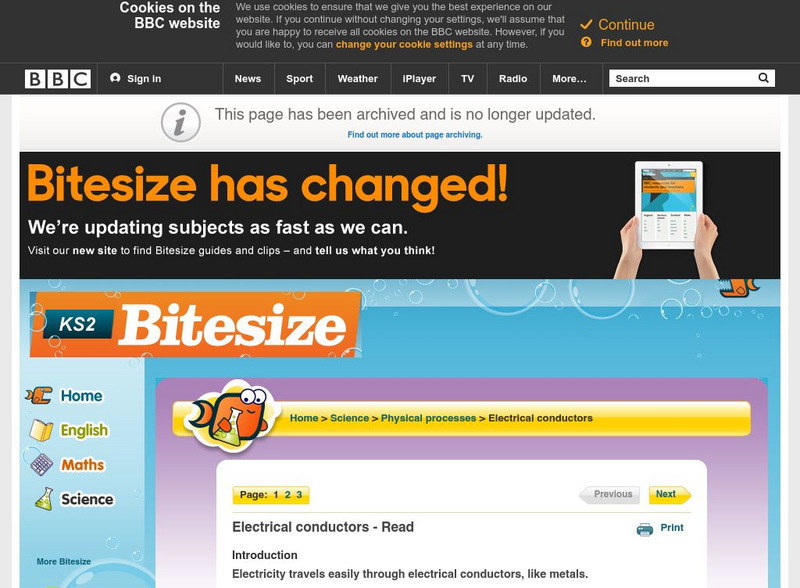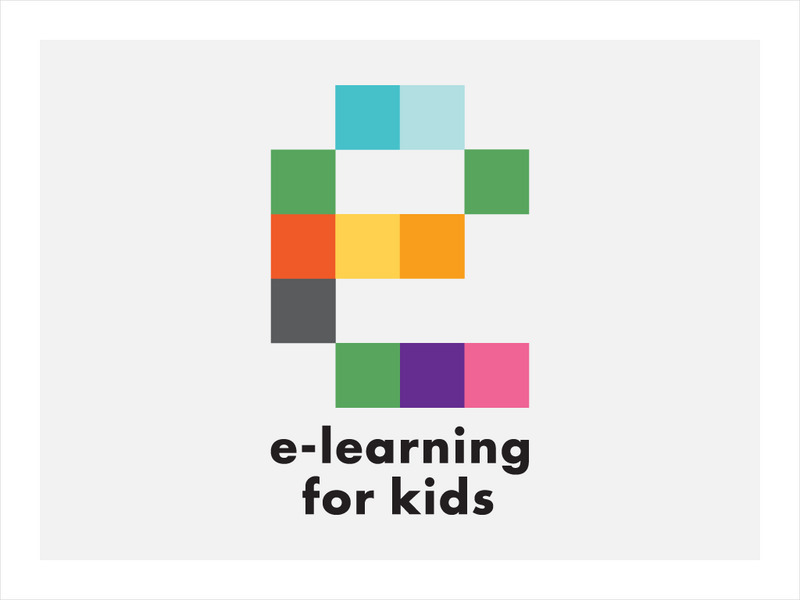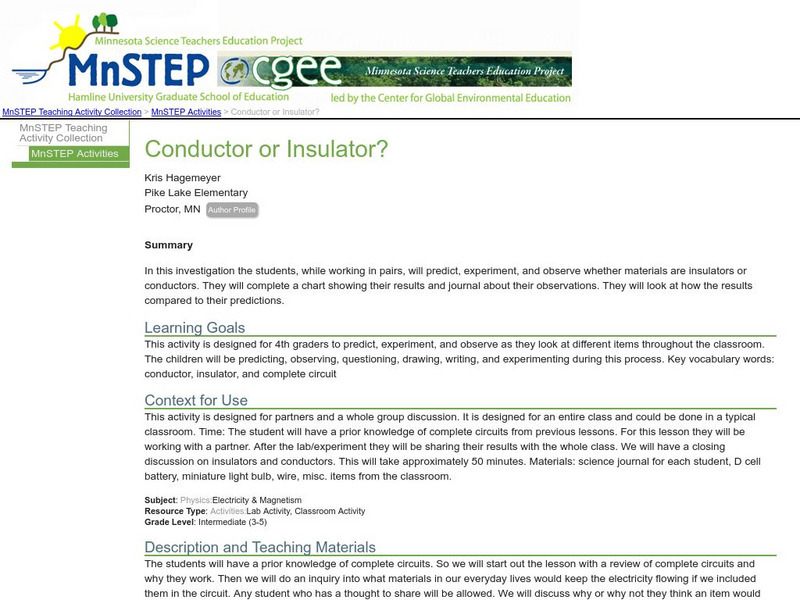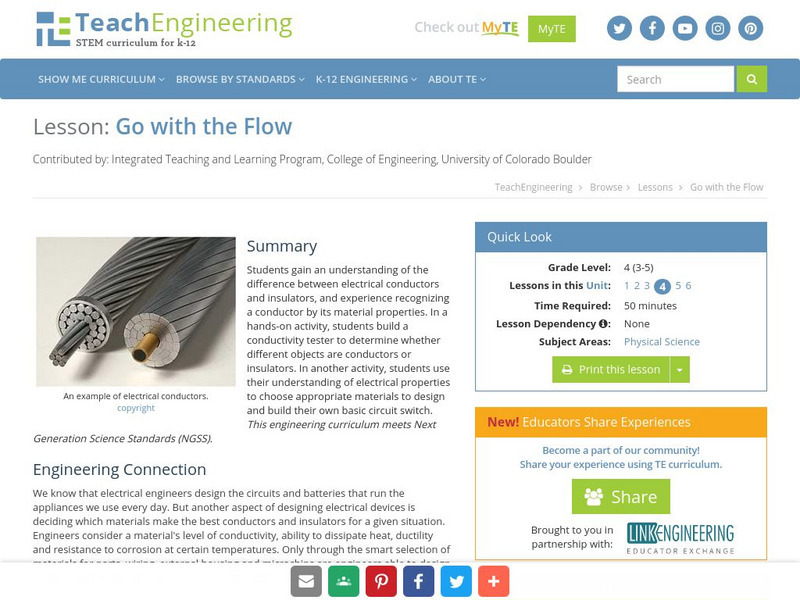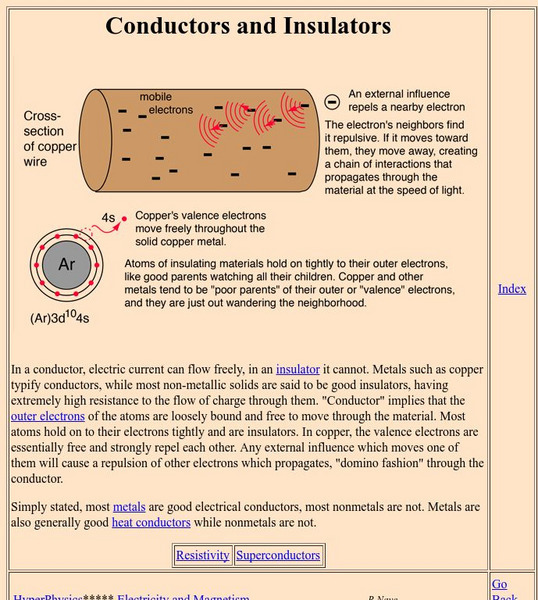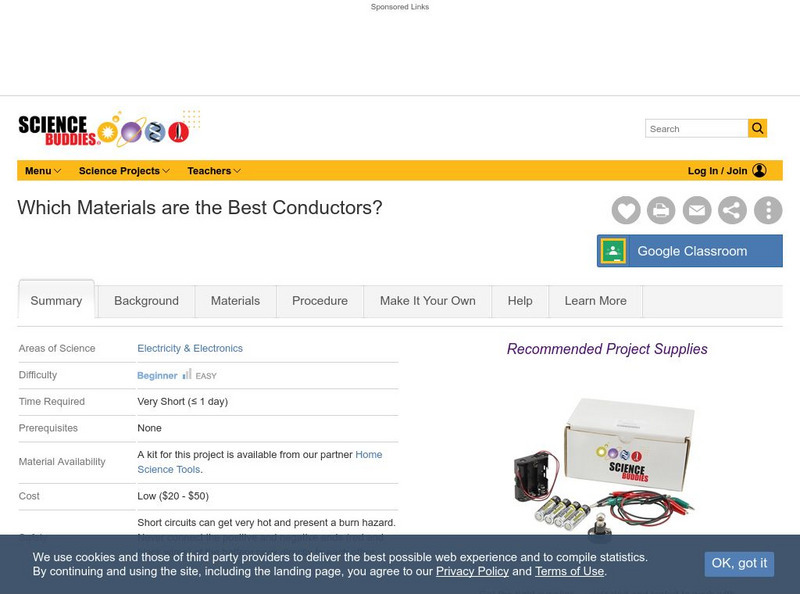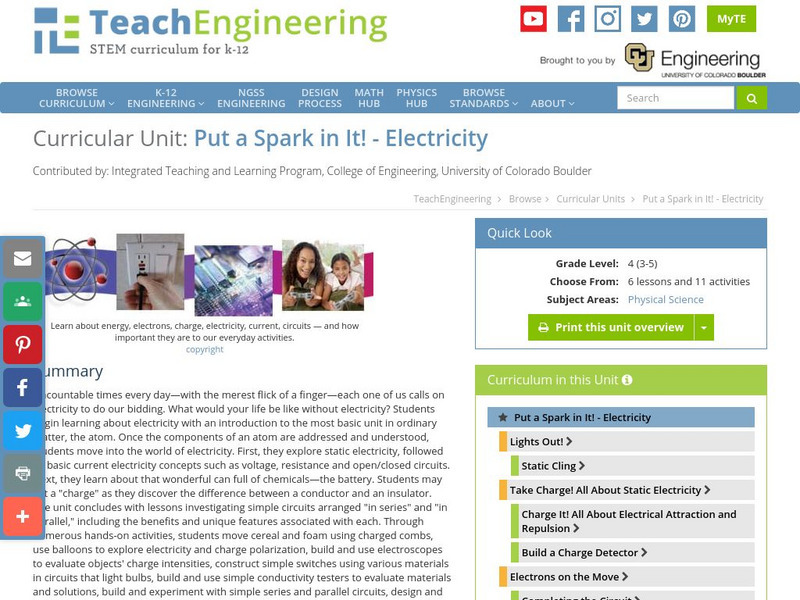Curated OER
Spelling List 20: Sight Words, Long /o/ Words, and Academic Vocabulary
For this spelling list worksheet, students practice spelling words that are sight words, long o words, and vocabulary. Students practice spelling 21 words total.
CK-12 Foundation
Ck 12: Physical Science: Electric Conductors and Insulators
[Free Registration/Login may be required to access all resource tools.] Explores electrical conductors and insulators and the path of least resistance.
CK-12 Foundation
Ck 12: Electric Conductors and Insulators
[Free Registration/Login may be required to access all resource tools.] In this lesson, students learn about materials that conduct electricity and those that insulate against it. Includes a simulation for exploring conductivity, and a...
BBC
Bbc Schools: Ks2 Bitesize: Science: Physical Processes: Electrical Conductors
Find out which material will save Steve from getting shocked by the electric eels. Following the activity, read more about electrical conductors, and then take a quick quiz to check for understanding.
Ducksters
Ducksters: Physics for Kids: Electrical Conductors and Insulators
Kids learn about electrical conductors and insulators in the science of electricity and physics including materials, superconductors, and semiconductors.
Science Buddies
Science Buddies: Which Materials Are the Best Conductors?
There are two main types of materials when it comes to electricity, conductors, and insulators. What are they made of? Find out by testing different materials in a circuit to see which ones conduct the most electricity.
CK-12 Foundation
Ck 12: Physical Science: Thermal Conductors and Insulators
[Free Registration/Login may be required to access all resource tools.] Thermal conductors and insulators and the ways they are used.
Other
The Blobz Guide to Electric Circuits
An exciting interactive site of games, activities, information, and quizzes about electric circuits. You'll learn what makes circuits work, all about conductors and insulators, switches, changing circuits, and circuit diagrams. Learning...
BBC
Bbc Schools: Ks2 Bitesize: Science: Physical Processes: Electrical Conductors
A review of electrical conductors and insulators, with diagrams, activities, and quiz questions.
E-learning for Kids
E Learning for Kids: Science: Arctic Ocean: What Are Conductors and Insulators?
Visit Vlad and learn about the properties of conductors and insulators, and what materials are used for them.
Science4Fun
Science4 Fun: Conductors and Insulators
Discover what materials make good conductors and insulators.
Science Education Resource Center at Carleton College
Serc: Conductor or Insulator?
In this investigation the students predict, experiment, and observe whether materials are insulators or conductors.
ArtsNow
Arts Now Learning: Using Dance to Explore Electricity [Pdf]
After analyzing examples of conductors and insulators, 5th graders will work in small groups to craft a dance that depicts an electrical current and how it is affected by a conductor or insulator. Students will present their dances to...
TeachEngineering
Teach Engineering: Go With the Flow
Students gain an understanding of the difference between electrical conductors and insulators, and experience recognizing a conductor by its material properties. In a hands-on activity, students build a conductivity tester to determine...
Georgia State University
Georgia State University: Hyper Physics: Conductors and Insulators
This site from Georgia State University provides information on the distinction between conductors and insulators. Factors contributing to the insulating ability of materials are discussed.
Science Buddies
Science Buddies: Project Ideas: Which Materials Are the Best Conductors?
A simple science fair project to test whether electricity can flow between two things. The Science Buddies project ideas are set up consistently beginning with an abstract, objective, and introduction, followed by a section on terms,...
Science Education Resource Center at Carleton College
Serc: Investigating Testing for Electrical Conductivity Using Materials
In this activity, students will understand that electricity moves through different circuits and discover what types of materials are conductors and insulators.
South Carolina Educational Television
Know It All: Understanding Electricity | Nasa Online
If you want to understand electricity, you first need to know a little about matter, atoms and electrons.
Canada Science and Technology Museum
Canada Science and Technology Museum: Background Information for Electricity
The Canada Science and Technology Museum answers some of the most common questions about electricity. For example, get the definition of electricity, the difference between alternating and direct currents, and learn how a fuse works.
TeachEngineering
Teach Engineering: Put a Spark in It! Electricity
Uncountable times every day "with the merest flick of a finger"each one of us calls on electricity to do our bidding. What would your life be like without electricity? Students begin learning about electricity with an introduction to the...
TryEngineering
Try Engineering: The Power of Graphene
In this engineering instructional activity, students learn about nanotechnology, graphene, and its electrical properties and applications. Teams of students test graphene to determine whether it is an electrical conductor or insulator,...
TeachEngineering
Teach Engineering: Conductivity
Students make a simple conductivity tester using a battery and light bulb. They learn the difference between conductors and insulators of electrical energy as they test a variety of materials for their ability to conduct electricity.
TeachEngineering
Teach Engineering: Build a Charge Detector
In this hands-on activity, students explore the electrical force that takes place between two objects. Each student builds an electroscope and uses the device to draw conclusions about objects' charge intensity. Students also determine...
University of St. Andrews (UK)
University of St. Andrews: Insulators
The nature of insulators is described at the atomic level. Band gap theory is used to explain what distinguishes insulators from conductors.








